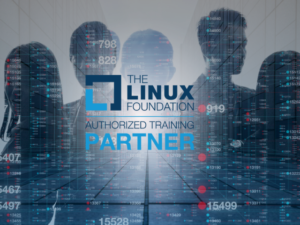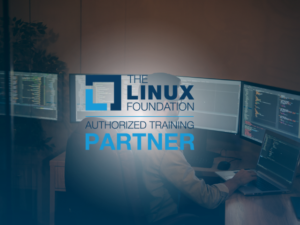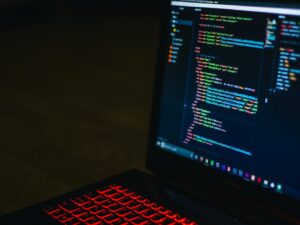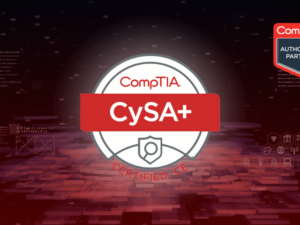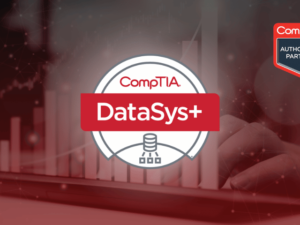Linux Kernel Internals and Development (LFD420)
- Description
- Reviews
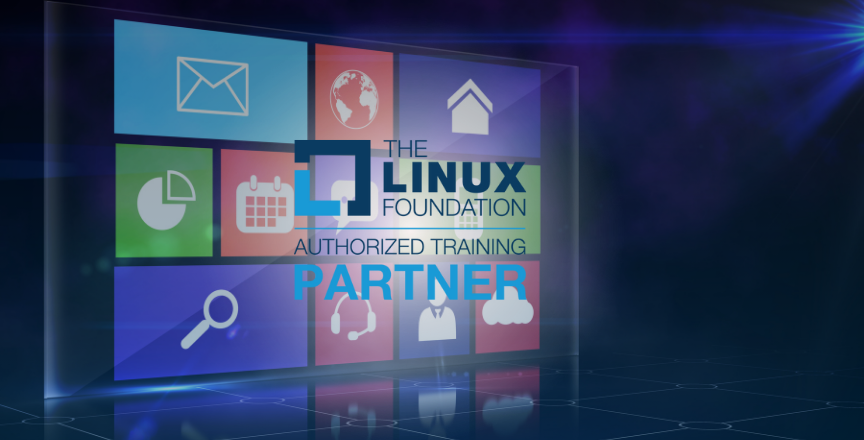
LINUX KERNEL INTERNALS AND DEVELOPMENT (LFD420)
COURSE DESCRIPTION
Learn how to develop for the Linux kernel. In this instructor-led course you’ll learn how Linux is architected, the basic methods for developing on the kernel, and how to efficiently work with the Linux developer community. If you are interested in learning about the Linux kernel, this is the definitive course on the subject.
WHO IS IT FOR
This course is designed to provides experienced programmers with a solid understanding of the Linux kernel. Students should be proficient in the C programming language, basic Linux (UNIX) utilities such as ls, grep and tar, and be comfortable with any of the available text editors (e.g. emacs, vi, etc.).
WHAT YOU’LL LEARN
In this course you will learn how Linux is architected, how kernel algorithms work, hardware and memory management, modularization techniques and debugging, how the kernel developer community operates and how to efficiently work with it, and much more.
WHAT IT PREPARES YOU FOR
You will come away from this course with a detailed understanding of the theory and philosophy behind the Linux kernel, and the ability to develop and debug Linux kernel code.
COURSE OUTLINE
Introduction
- Objectives
- Who You Are
- The Linux Foundation
- Copyright and No Confidential Information
- Linux Foundation Training
- Certification Programs and Digital Badging
- Linux Distributions
- Platforms
- Preparing Your System
- Using and Downloading a Virtual Machine
- Things Change in Linux and Open Source Projects
- Documentation and Links
Preliminaries
- Procedures
- Kernel Versions
- Kernel Sources and Use of git
- Labs
How to Work in OSS Projects
- Overview on How to Contribute Properly
- Know Where the Code is Coming From: DCO and CLA
- Stay Close to Mainline for Security and Quality
- Study and Understand the Project DNA
- Figure Out What Itch You Want to Scratch
- Identify Maintainers and Their Work Flows and Methods
- Get Early Input and Work in the Open
- Contribute Incremental Bits, Not Large Code Dumps
- Leave Your Ego at the Door: Don’t Be Thin-Skinned
- Be Patient, Develop Long Term Relationships, Be Helpful
Kernel Architecture I
- UNIX and Linux
- Monolithic and Micro Kernels
- Object-Oriented Methods
- Main Kernel Components
- User-Space and Kernel-Space
Kernel Programming Preview
- Error Numbers and Getting Kernel Output
- Task Structure
- Memory Allocation
- Transferring Data between User and Kernel Spaces
- Object-Oriented Inheritance – Sort Of
- Linked Lists
- String to Number Conversions
- Jiffies
- Labs
Modules
- What are Modules?
- A Trivial Example
- Compiling Modules
- Modules vs Built-in
- Module Utilities
- Automatic Module Loading
- Module Usage Count
- The module struct
- Module Licensing
- Exporting Symbols
- Resolving Symbols **
- Labs
Kernel Architecture II
- Processes, Threads, and Tasks
- Process Context
- Kernel Preemption
- Real Time Preemption Patch
- Dynamic Kernel Patching
- Run-time Alternatives **
- Porting to a New Platform **
- Labs
Kernel Initialization
- Overview of System Initialization
- System Boot
- Das U-Boot for Embedded Systems**
- Kernel Startup
Kernel Configuration and Compilation
- Installation and Layout of the Kernel Source
- Kernel Browsers
- Kernel Configuration Files
- Kernel Building and Makefiles
- initrd and initramfs
- Labs
System Calls
- What are System Calls?
- Available System Calls
- How System Calls are Implemented
- Adding a New System Call
- Labs
Kernel Style and General Considerations
- Coding Style
- kernel-doc **
- Using Generic Kernel Routines and Methods
- Making a Kernel Patch
- sparse
- Using likely() and unlikely()
- Writing Portable Code, CPU, 32/64-bit, Endianness
- Writing for SMP
- Writing for High Memory Systems
- Power Management
- Keeping Security in Mind
- Mixing User- and Kernel-Space Headers **
- Labs
Race Conditions and Synchronization Methods
- Concurrency and Synchronization Methods
- Atomic Operations
- Bit Operations
- Spinlocks
- Seqlocks
- Disabling Preemption
- Mutexes
- Semaphores
- Completion Functions
- Read-Copy-Update (RCU)
- Reference Counts
- Labs
SMP and Threads
- SMP Kernels and Modules
- Processor Affinity
- CPUSETS
- SMP Algorithms – Scheduling, Locking, etc
- Per-CPU Variables **
- Labs
Processes
- What are Processes?
- The task struct
- Creating User Processes and Threads
- Creating Kernel Threads
- Destroying Processes and Threads
- Executing User-Space Processes From Within the Kernel
- Labs
Process Limits and Capabilities **
- Process Limits
- Capabilities
- Labs
Monitoring and Debugging
- Debuginfo Packages
- Tracing and Profiling
- sysctl
- SysRq Key
- oops Messages
- Kernel Debuggers
- debugfs
- Labs
Scheduling
- Main Scheduling Tasks
- SMP
- Scheduling Priorities
- Scheduling System Calls
- The 2.4 schedule() Function **
- O(1) Scheduler **
- Time Slices and Priorities
- Load Balancing
- Priority Inversion and Priority Inheritance **
- The CFS Scheduler
- Calculating Priorities and Fair Times
- Scheduling Classes
- Scheduler Details
- Labs
Memory Addressing
- Virtual Memory Management
- Systems With and Without MMU and the TLB
- Memory Addresses
- High and Low Memory
- Memory Zones
- Special Device Nodes
- NUMA
- Paging
- Page Tables
- page structure
- Kernel Samepage Merging (KSM) **
- Labs
Huge Pages
- Huge Page Support
- Transparent Huge Pages
- libhugetlbfs
- Labs
Memory Allocation
- Requesting and Releasing Pages
- Buddy System
- Slabs and Cache Allocations
- Memory Pools
- kmalloc()
- vmalloc()
- Early Allocations and bootmem()
- Memory Defragmentation
- Labs
Process Address Space
- Allocating User Memory and Address Spaces
- Locking Pages
- Memory Descriptors and Regions
- Access Rights
- Allocating and Freeing Memory Regions
- Page Faults
- Labs
Disk Caches and Swapping
- Caches
- Page Cache Basics
- What is Swapping?
- Swap Areas
- Swapping Pages In and Out
- Controlling Swappiness
- The Swap Cache
- Reverse Mapping **
- OOM Killer
- Labs
Device Drivers
- Types of Devices
- Device Nodes
- Character Drivers
- An Example
- Labs
Signals
- What are Signals?
- Available Signals
- System Calls for Signals
- Sigaction
- Signals and Threads
- How the Kernel Installs Signal Handlers
- How the Kernel Sends Signals
- How the Kernel Invokes Signal Handlers
- Real Time Signals
- Labs
Closing and Evaluation Survey
- Evaluation Survey
Please contact us for schedules and for booking a private class.
Request a Quote
Popular Courses
Archive
Working hours
| Monday | 9:00 am - 6.00 pm |
| Tuesday | 9:00 am - 6.00 pm |
| Wednesday | 9:00 am - 6.00 pm |
| Thursday | 9:00 am - 6.00 pm |
| Friday | 9:00 am - 6.00 pm |
| Saturday | Closed |
| Sunday | Closed |

